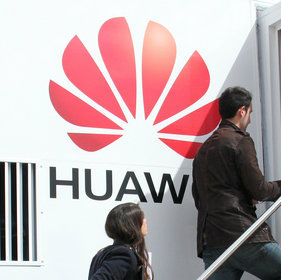3Peak, one of the first investments of Huawei's venture arm Hubble Technologies, is aiming to raise 850 million yuan (US$120 million) on the Shanghai science and technology board.

Huawei's new venture arm is headed for an early windfall with chip designer 3Peak readying for an IPO.
3Peak, which makes analog signal chips for 5G basestations, is aiming to raise 850 million yuan (US$120 million) on the Shanghai science and technology board, according to Sina Tech website.
The Suzhou-based firm, founded by ex-Motorola Semiconductor and IBM employees, was one of the first investments of Huawei's venture arm Hubble Technologies.
Hubble was set up in April 2019 and shortly after spent 72 million yuan ($10.2 million) for an 8% stake in 3Peak, then valued at 900 million yuan ($127.4 million). If successful the listing would make 3Peak worth 4 billion yuan ($566.4 million) – a handy 344% increment on the original investment.
One reason for 3Peak's success may be the role of Huawei itself as a buyer of its chips. Besides companies such as ZTE and Haier, 3Peak lists an unnamed major customer whose heavy purchases in the past three years have powered its return to profit.
3Peak won't disclose the mystery buyer's identity – only that it ships a total 100 million communications chips a year. However, that its disclosed list of customers doesn't include Huawei, its shareholder and China's biggest communications vendor, is quite suggestive.
It also highlights the secrecy around Hubble Technologies. Huawei's latest annual report does not reference Hubble, nor does the company have a website.
Hubble was set up as a wholly owned Huawei subsidiary with registered capital of 700 million yuan ($99.1 million). Huawei upped that to 1.4 billion yuan ($198.2 million) in January and has since made two more investments.
For most global tech companies, setting up a venture arm is a regulation move. But whereas US corporate venture units tend to act as quasi-autonomous VCs with a broad investment ambit, Hubble's focus is strictly Huawei, driven by the company's race to fortify itself against US sanctions.
As one fund manager said, referring to the US ban and penalty on ZTE in 2018: "Huawei didn't pay much attention to domestic companies in the past, but after the ZTE incident, its attitude changed significantly."
Unlike other corporate VC units, Hubble has no independent investment team, but acts a funding channel for Huawei business units. Its chairman, Bai Yi, is president of Huawei's global financial risks control group.
All nine firms in its portfolio are chip- or hardware-related. These include the China unit of Taiwan company Starconn, a major connector maker, Shandong Tianyue, a supplier of silicon carbide for semiconductor manufacture, and NewCoSemi, another fabless chip firm specializing in display and enterprise networking.
Hubble isn't the only vehicle for Huawei acquisitions, though. The vendor recently acquired a small stake in a wireless testing company owned by state conglomerate CETC.
— Robert Clark, contributing editor, special to Light Reading
Read more about:
AsiaAbout the Author(s)
You May Also Like










